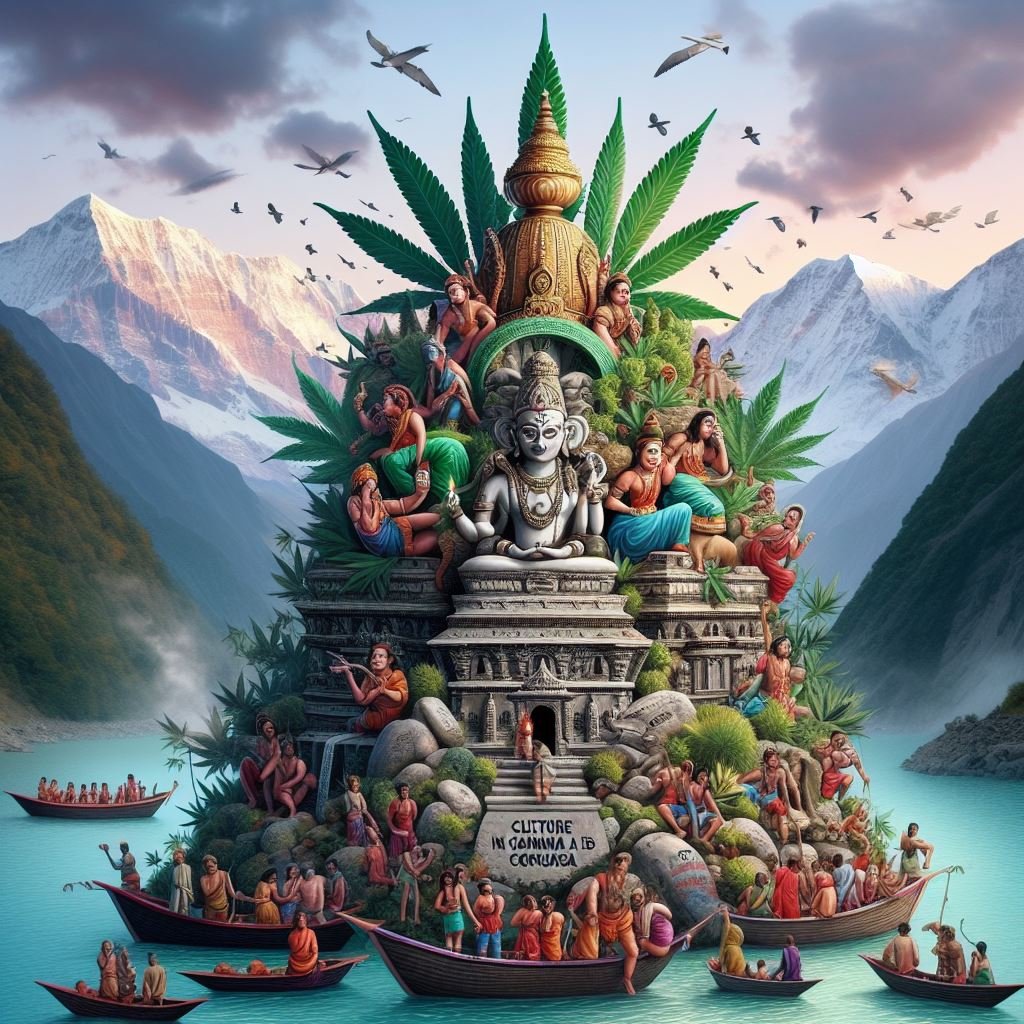Culture, Cannabis, and Controversies

The earliest evidence of hemp used by human society comes from the island of Taiwan, dating back over 10,000 years.
Cannabis has multiple qualities and can be used in other ways than just using it to get intoxicated. Around 105 BCE, a minor court official Ts’ai Lun used crushing hemp fibre and mulberry tree bark, and combined them to produce the first paper.
In South Asia, the plant was admired in Atharva Veda which considered cannabis as one of the five plants that relieve sorrow and distress.
Cannabis consumption was widespread in South Asia, while British authority in India in the pretext of curtailing cannabis use rather emphasized profiting from it. The British imposed a tax in 1798 on cannabis products in India.
India continued to debate cannabis consumption and conducted research in 1893-1894 through the Indian Hemp Drugs Commission. The Commission was praised but remained controversial due to strong financial incentives for the British Government to allow cannabis consumption.
Nepal was an isolated state, free from direct European influence, so its people easily could consume marijuana due to its cultural acceptance.
In 1961, Nepal introduced the Narcotic Drugs Act, making it mandatory to have a license to produce, sell, export, and import cannabis.
Cannabis being legal in Nepal was the perfect destination for Hippies. Mark Liechty, a renowned South Asianist called Kathmandu “the Mecca of hippiedom.”
Nepal, with its relaxed cannabis culture, was dismantled with direct foreign interference. The United States being the oldest development partner in Nepal had initiated the assistance agreement in 1951 that helped the US exert its influence in Nepal.
In 1970, the United States passed the Comprehensive Drug Abuse Prevention and Control Act. President Nixon declared narcotics as America’s public enemy number one. This marked a turning point even for Nepal’s cannabis culture.
Kritinidhi Bista, who is remembered for standing against India by removing Indian troops from checkposts from the Nepal-China border, succumbed to the US lobby in 1973. Nepal revoked all licenses to cultivate, buy, and sell cannabis; Bista later implemented the Narcotics Drugs (Control) Act, 2033 (1976), which made cannabis illegal in Nepal.
Nepal started ratifying the conventions on Narcotic Drugs and Psychotropic Substances after 1987 and also maintained reservations on the Single Convention on Narcotic Drugs, 1961 this raises doubts about Nepal’s true intention in the War Against Drugs.
Cannabis is associated with Shiva and is widely tolerated on the eve of Shivaratri when devotees visit the Shiva temple and consume marijuana. In fact, until 1995, the Pashupati Area Development Trust, a body established by a Governmental Act, used to distribute marijuana to Sadhus. This practice ceased after Sadhus were found distributing and even selling marijuana to visitors.
Sadhus are allowed to smoke weed, but they are not allowed to sell it, which led to police surveillance to prevent the public from doing the same. The ban was considered ineffective as people continued to use marijuana around temple spaces.
In Thailand, former Nepali Crown Prince Paras was caught with 12 grams of marijuana in November 2012. He was released on bail but subsequently smashed a luxury apartment and returned to jail. He was arrested on July 10, 2014, at the Devis Hotel for possessing marijuana and was arrested in October 2014 amid a forest, this time with 10 grams of cocaine and 9 grams of marijuana.
In December 2022, Surya Bahadur Gharti the chair of Nisikhola Rural Municipality in Baglung was found guilty of possession of marijuana. In May 2023, a large quantity of cannabis was found in the house of Shiva Jung Thing, Ward Chairman of Thaha Municipality-7, Makwanpur.
As the United States and other countries began discussing the legalization of medical and recreational marijuana, the debate also gained momentum in Nepal, particularly on the premise that Nepal had banned marijuana under foreign pressure.
On January 27, 2020, the Nepal Communist Party lawmakers registered a motion to legalize cannabis, and MP Sher Bahadur Tamang continued his crusade to legalize marijuana.
Some Nepali fantasize about how marijuana could transform the Nepali economy. Cannabis has the potential to boost tourism, serve as a fabric for clothes, and even create building materials. It’s a debate worth exploring.
Author
Kripendra Amatya, Researcher, Nepa~laya Productions
Editor
Dana Moyal Kolevzon, Director of International Relations, Nepa~laya Productions
Published Date
November 3, 2023



